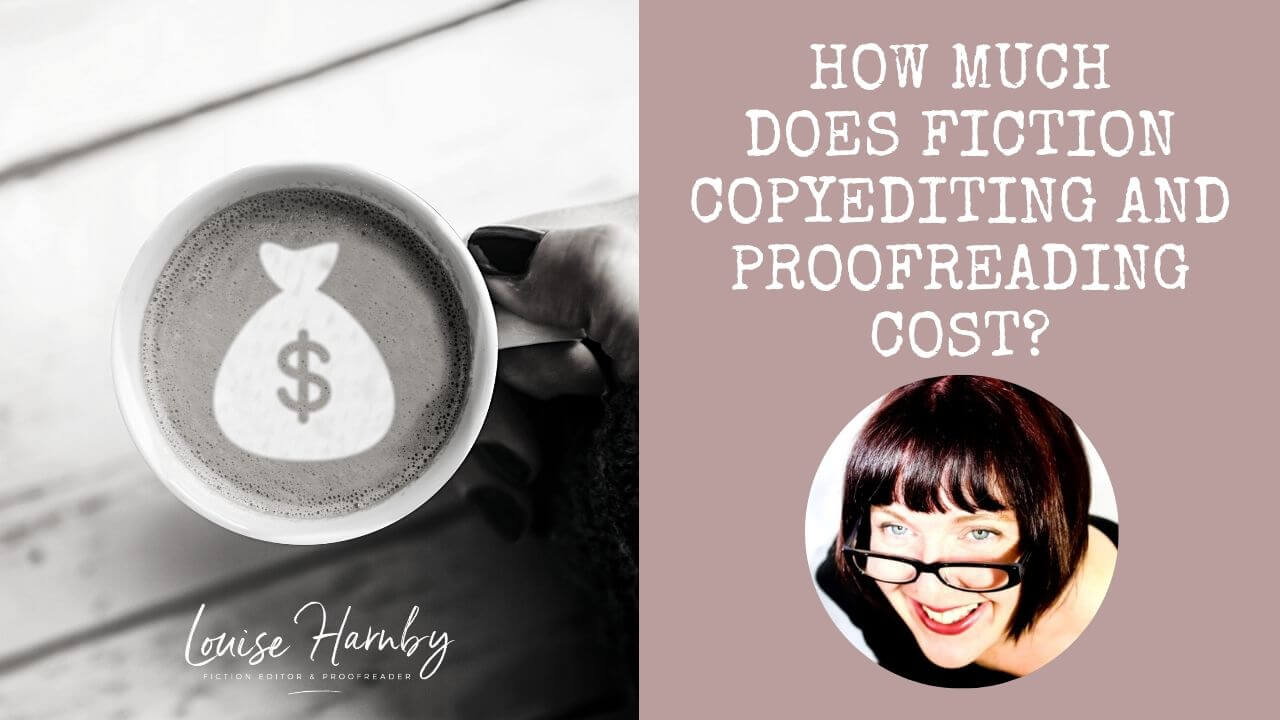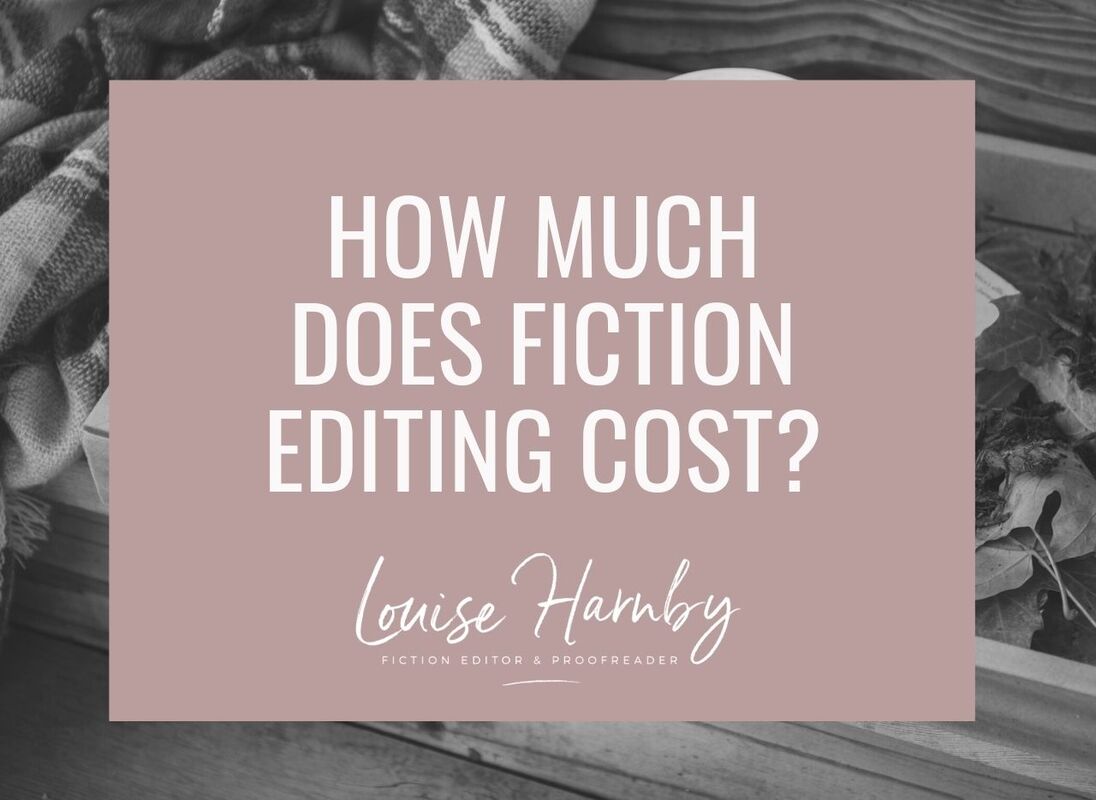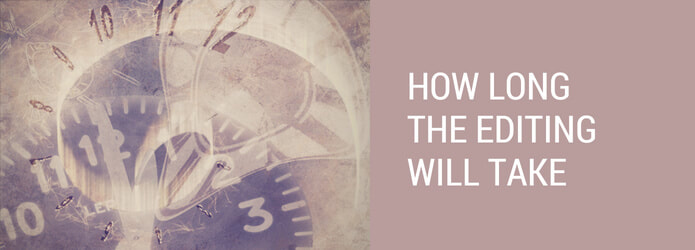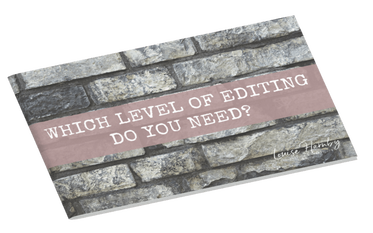|
This article shows you what it might cost to get your novel line edited, copyedited or proofread. However, the short answer is: it depends ...
This post headlined in Joel Friedlander's Carnival of the Indies #94
I’ll look at each of these points in turn, then offer you some ideas of what you can do to reduce the financial hit.
First of all though, a quick word on whether you should bother and, if you do, what type of service you should invest in. Do you have to work with a professional editor? Not at all – it’s your choice. That’s one of the biggest benefits of self-publishing. You get to stay in control and decide where to invest your book budget. However, I absolutely recommend that your book is edited ... by you at the very least, but ideally by a fresh set of eyes, and even more ideally by a set of eyes belonging to someone who knows what to look out for. And the reason for that recommendation is because 99.99% of the time, editing will make a book better. We can all dream about first-draft perfection, but it’s pie in the sky for most, even those who edit for a living. I’m a professional line editor, copyeditor and proofreader, and today I wrote a guest blog post for a writer. I wrote, and then I edited ... first for content, then for flow, then for errors. I found problems with each pass. That’s not because I can’t write. It’s not because I can’t string a sentence together. It’s not because I didn’t edit properly in the first round. The reason I found problems is because writing is one process – editing is another:
And the different types of editing attend to different kinds of problems and have different outcomes. Trying to do everything at once is like trying to mix a cake, bake it, ice it, eat it, and sweep up the crumbs all at the same time. Breaking down the writing and editing processes into stages is a lot less messy, and the quality of outcomes is much higher. Still, that has a cost to it, and it’s a cost that the self-publisher will have to bear because there’s no big-name press to bear the burden for them.
Cost of editing: the individual editor
The independent editing market is global and diverse. Editors specialize in carrying out different types of editing. Some specialize by subject or genre. They have different business models and varied costs of living. And that means that despite what you might read in this or that survey, there is no single, universal rate. Neither is there a universal way of offering that rate:
My preference is to charge on a per-word basis, subject to seeing a sample of the novel. Because economies of scale come into play with longer projects, my per-word prices decrease as the project length increases. For example, in 2020, I charge 7.5 pence per word for a 1,000-word sample edit, but the fee is 20% cheaper if I'm line editing a 5,000-word story and 50–60% cheaper if I'm dealing with an 80,000-word novel. And so it depends on the parameters of the project. Some editors charge more than me, some less, and some the same. My colleagues live all over the world, and fluctuations in the currency-exchange markets mean that comparisons will yield different results from day to day.
Cost of editing: industry surveys and reports
Some professional organizations suggest or report minimum hourly rates for the various levels of editing. They’re ballparks, nothing more, for reasons outlined below the table (fees correct as of July 2019).
ARE THESE RATES REALISTIC?
Do these figures bear any relation to what individual editors charge? Sometimes but not always. Most organizations recognize that these reported prices don’t always reflect market conditions, and they’re right to do so. Many editors and proofreaders, myself included, aim for rates at least 30% higher. Why? Because that’s what it takes for our businesses to be profitable. Editing and proofreading aren’t activities we do in our spare time. They're not side hustles. They’re careers that enable us to pay the bills. If we can’t meet our living costs, we become insolvent, just like any other business owner. The problem with these ballparks is that they don’t reflect the speed at which an individual works, the complexity of each job, the time frame requested, or the editor’s circumstances. An additional problem is that how these organizations define ‘proofreading’, ‘copyediting’ etc. might not reflect an author’s understanding of what the service involves, or what an editor has elected to include. And then there’s the age-old issue of currency-exchange rates. What might seem a high rate to you one day could turn into something quite different the next, and not because the editor’s or the author’s life has changed, but because of Trump, or the Bank of England, or a hung parliament here, or a banking crisis there. Bear in mind that independent editors are professional business owners, and just like any other business owner they are responsible for tax, insurance, sick pay, holiday pay, maternity/paternity entitlements, training and continued professional development, equipment, accounting, promotion, travelling expenses, pension provision, and other business overheads.
Cost of editing: turnaround time
The table below gives you a rough idea of the speed at which an editor can work. Again, we’re dealing with ballpark ranges because the true speed will depend on the complexity of the project and how many hours a day the editor works.
Experienced editors have years’ worth of data that enables them to review a sample of a novel and estimate how long a project will take based on the level of editing requested.
The figures in the table above represent a working day of around 5 hours of actual editing. Additional time will be spent on business administration, marketing and training. Here’s how costs might begin to creep up. Imagine you ask your editor to copyedit your 80K-word novel. The editor estimates the job will take 50 hours, or two weeks. You need it in one. If you want to work with that editor, they’re going to have to work 10 hours a day, not 5. That means they have to pull 5 evenings on the trot in addition to their standard working day. That evening work is when they spend time with their families, recharge their batteries, catch up with friends, support their dependents, carry out the weekly food shop, help their kids with the homework ... normal stuff that lots of people do. If you want them to work during that time, it’s probably going to cost you more. For example, I charge triple my standard rate because my personal time is valuable to me – and to my child, who will need bribing!
Cost of editing: the complexity of the project
The more the editor has to do, the longer the job will take and the higher the cost. Some authors might not be aware of the different levels of editing and what each comprises. And editors don’t help – we define our services variously too! For that reason, sometimes it makes sense to move away from the tangled terminology and focus on what each project needs to move it forward. An author might ask for a ‘proofread’ but the editor’s evaluation of the sample could indicate that a deeper level of intervention will be needed ... something more than a prepublication tidy-up. I’ve copyedited novels whose authors had nailed narrative point of view at developmental editing stage, so I didn’t have to fix the problem. I’ve also copyedited novels in which POV had become confused. The sample-chapter evaluation highlighted the problem, and I had to adjust my fee to account for the additional complexity.
How to reduce your editing costs
So, there we have it – 1,300 words that tell you not what editing and proofreading will cost, but what they might cost, depending on this, that, and everything else! Here are some ideas for how to reduce your costs. GENERAL MONEY-SAVING TIPS
SAVING MONEY ON DEVELOPMENTAL EDITING Hone your story craft by reading books, taking writing courses, and joining writing groups through which you’ll be able to access fellow scribes! You can critique each other’s work and help each other with self-editing. I recommend these books:
Rather than commissioning a full developmental edit, you could pay for a critique or manuscript evaluation, or a mini edit. Those will help you to identify what works and what doesn’t so that you can make the adjustments yourself. SAVING MONEY ON LINE EDITING Hone your sentence-level mastery, again through books, courses and groups. Some editors offer mini line edits for this stage of editing too. Here, the editor offers a line-by-line edit on several chapters and creates a report on the sentence-level problems with the text with recommendations for fixing them. The author can then refer to the mini line edit and mimic the sentence smoothing and tightening. This kind of service is particularly useful for beginner authors who already know they’re prone to overwriting. And I have a book you might find useful:
SAVING MONEY ON COPYEDITING Learn how to use Word’s amazing onboard functionality, and macros and add-ins that flag up potential errors and inconsistencies. Here are some tools you can use:
SAVING MONEY ON PROOFREADING If you’re working on designed page proofs, there are a series of checks you can take your novel through.
That’s it! I hope this article has given you a sense of what you might have to spend, and how you might be able to save during the editing process.
Louise Harnby is a line editor, copyeditor and proofreader who specializes in working with crime, mystery, suspense and thriller writers.
She is an Advanced Professional Member of the Chartered Institute of Editing and Proofreading (CIEP), a member of ACES, a Partner Member of The Alliance of Independent Authors (ALLi), and co-hosts The Editing Podcast. Visit her business website at Louise Harnby | Fiction Editor & Proofreader, say hello on Twitter at @LouiseHarnby, connect via Facebook and LinkedIn, and check out her books and courses.
10 Comments
How Not to Write a Novel is one of my favourite writing books - it's great to see someone else recommend it!
Reply
Louise Harnby
4/7/2018 10:00:33 am
Thanks, Lola. I'm not the first person to write about the cost of editing, and I won't be the last!
Reply
Elaine Housby
19/7/2018 11:49:20 pm
I think your website and blog are both excellent, both the content and the design. I have learnt a lot from you. I have a fair amount of experience of proofreading academic papers (I've never done fiction). I had a strong suspicion I wasn't charging enough, and this article has confirmed that! When you really need the work it is hard to refuse to lower your fees, but I have done so in the past and would again. There is a problem with academic language editing in that the writers often get a native English speaking mate to have a quick read through for free, and don't appreciate that an experienced professional will do a much better job, but won't do it for free. When desperate I have also worked for agencies who rewrite student essays, and that is soul destroying - the student gets charged through the nose and the poor sweated editor is paid a pittance. So much scope there for offering a better and more ethical service.
Reply
20/7/2018 10:06:10 am
Hi, Elaine. Thank you! Yes, it can be tough to stick to your guns when times are tough. Sometimes earning a lower-than-desired rate is better than earning nothing at all. My view on this is that we need do develop a strong marketing strategy that will make us visible in the longer term to clients who will pay our desired fees. That way we have choice.
Reply
17/7/2019 04:21:52 pm
I have been a French-to-English translator over the last 25 years, but now the automatic French to English translation system has rendered my business completely out-of date. That is why I would like to know if I could make a iiving from proof-reading.
Reply
Louise Harnby
17/7/2019 05:02:47 pm
There are tens of thousands of editors and proofreaders who make a living from editorial work. Look at the left-hand side of this page on my website, and scroll down to RESOURCES: https://www.louiseharnbyproofreader.com/by-appointment.html
Reply
Kerry
8/10/2019 01:00:04 am
Hi Louise,
Reply
Kerry
8/10/2019 01:12:53 am
Hi Louise,
Reply
Louise Harnby
8/10/2019 12:13:17 pm
Crime writers are like any other writer! They have problems, and want editors who can solve them. That's why I have a library of resources ... blog posts, videos, booklets. It demonstrates my expertise and it's findable in the search engines. Under another name it's called content marketing. Take a look at my Courses and Books page if you want to learn how to make yourself interesting and discoverable to niche markets. Hope that helps! There are also some free resources about marketing here: https://www.louiseharnbyproofreader.com/editor-resources.html
Tom
12/1/2021 08:49:19 am
Hi Louise,
Reply
Leave a Reply. |
BLOG ALERTSIf you'd like me to email you when a new blog post is available, sign up for blog alerts!
TESTIMONIALSDare Rogers'Louise uses her expertise to hone a story until it's razor sharp, while still allowing the author’s voice to remain dominant.'Jeff Carson'I wholeheartedly recommend her services ... Just don’t hire her when I need her.'J B Turner'Sincere thanks for a beautiful and elegant piece of work. First class.'Ayshe Gemedzhy'What makes her stand out and shine is her ability to immerse herself in your story.'Salt Publishing'A million thanks – your mark-up is perfect, as always.'CATEGORIES
All
ARCHIVES
July 2024
|
|
|
|























 RSS Feed
RSS Feed





